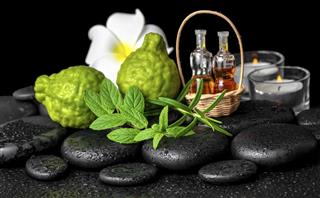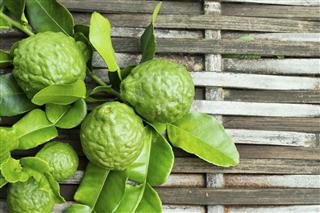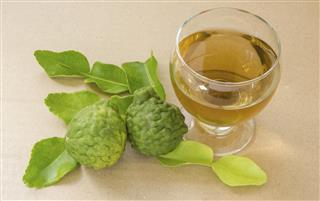
Bergamot tea is obtained by brewing leaves of the bergamot herb. This tea has several medicinal benefits and is consumed by people with health issues like cough, cold, sinusitis, etc.
Also known as Oswego tea or bee balm, bergamot tea is quite popular with native American Indians. These natives lived in parts of Western New York and prepared this bergamot tea from the dried leaves of the bergamot herb, scientifically called Monarda Didyma, which can be identified by its sturdy, square stems shooting to a height of four feet with simple leaves. The leaves are crowned with glorious pink, purple, white or bright red-colored flowers. Although these perennials are used to adorn gardens, their leaves are popularly dried to prepare bergamot tea. In fact, the faithful bergamot tea Native American drinkers shared this delectable tea to the colonial settlers, who then went and used it as a substitute for imported tea, during its scarcity after the Boston tea party.
Bergamot Tea Facts
Bergamot Tea Flavor
The leaves of the bergamot herb have been used to brew tea for the past 1000 years and are still be used to brew tea. This tea is called bergamot tea due to its scent similarity to bergamot orange. Moreover, the flavor of bergamot tea is similar to that of Earl Grey tea, thus, when fresh or dried bergamot leaves are infused as tea, they impart the flavor of Earl Grey tea to iced drinks and China tea. When infused with loose leaf teas, this tea tastes wonderful.
Bergamot Tea Benefits
The bergamot herb is a safe herb used as an alternative to allopathic medicine with regards to ailments like nausea, headaches, sinus problems, cough, influenza, etc. The tea leaves are put in a pot of boiling water and then the steam released is inhaled to cure colds and clear sinuses. The tea also helps treating digestive problems like flatulence and stomach upsets. Bergamot tea is also great for combating fevers and chills and also increasing urine output. Since this herbal tea contains the aromatic antiseptic thymol, it is commonly used by dentists and modern medical practitioners. Moreover, this tea has been used to preserve meats and even in perfumes, shower gels, etc.
Bergamot Tea Recipes
Preparing bergamot tea is quite simple. Just take a cup of boiling water and pour it onto a few teaspoons of bergamot herb. The tea can be prepared from the fresh form, dried form or even the seeds or bark of the herb. Depending on the form used, the recipe will vary slightly. If you are using the fresh plant material, one needs to add ¼ cup of the fresh material and allow it to stand for 5 minutes before straining and drinking it.
For all the forms the procedure is the same, with the only difference lying in the quantity of herb form added. If you are using the dried form or seeds, add only 2 teaspoons of the herb. If you are using the bark, just add one teaspoon of bark. To enhance the flavor of this tea add honey or fresh lemon juice into the tea. Moreover, if you wish to add bergamot tea along with loose tea leaves, add a teaspoon of bergamot dried herb to one teaspoon of bergamot for one cup of tea. The longer you brew, the stronger the tea, so according to your preference cut back on the time.
Besides tea, bergamot tea can be used in the preparation of various dishes, especially meat preparations, wherein bergamot leaves are added in place of sage or other dried herbs.
Bergamot Tea Side Effects
The side effects of bergamot tea are tantamount to the side effects known for any herb. When had in large doses, the tea can conduce to menstruation stimulation and even cause uterine contraction. Thus, people with menstrual problems should not have this tea. Even pregnant women and breastfeeding women should keep away from this tea. This tea should not be consumed continuously. Keep giving it a break. Have it for 8-10 days, then stop having it for one week, then resume. However, if you are having it to treat cold, flu, sinusitis, etc. you can have it three times a day, but not beyond four days. Thus, having it in moderate amounts will help your body.
The problem while dealing with herbs is that we need to be sure that the particular herb is actually the one we are talking about. Any substitutes can prove dangerous. Moreover, people with medical conditions should always consult their health care provider. It’s important to remember that no matter which herbal remedy one chooses, they are all extremely powerful, thus, if you encounter any side effects after taking this tea, stop having it immediately.





